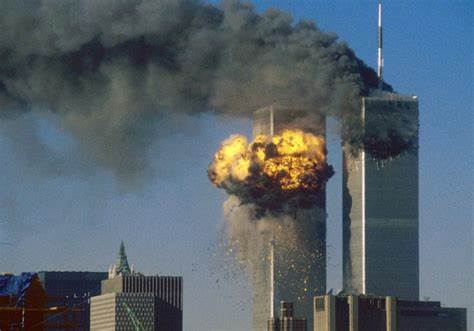This is the VOA Special English program, IN THE NEWS.
The economic effects of the terrorist attacks in the United States last week are spreading across the country and the world. The attacks in New York City and Washington D.C. have hurt many businesses, especially the airline industry and financial markets. Many companies have been forced to dismiss thousands of workers. Many individual states are concerned about their economic future.
Monday was the first day of trading on the American stock market since the attacks September Eleventh. The stock market suffered major losses. The Dow Jones industrial average lost seven percent of its value. The other major measures of the value of American stocks fell to their lowest levels in three years.
Some economic experts say the drop in the value of stocks could directly affect long-term spending. They say it may cause people to lose trust in the economy and spend less money. Businesses across the country already have reported decreases in sales. Experts note that the American economy was close to a recession even before the attacks.
The airline industry was probably hardest hit by the attacks. The nation’s skies were temporarily closed to all air travel. Travelers remain frightened and are avoiding flying. High fuel and labor costs are making the situation worse. The airlines are losing hundreds of millions of dollars each day.
Major airlines in the United States have announced plans to dismiss almost eighty-thousand workers. A major builder of airplanes, Boeing, says it will dismiss as many as thirty-thousand workers. Airlines in many other countries are cutting flights and jobs. Many other businesses dependent on the airline industry also have been harmed.
The American airline industry has asked the federal government for help. Airline officials are hopeful after Congressional leaders and administration officials agreed Friday to a fifteen-thousand-million dollar financial aid plan for the industry.
There are also concerns about the economic effects of any military action. This could raise the price of oil. Production could be reduced if a large number of part time troops are called to active duty. Trade could be restricted.
On Monday, the United States Federal Reserve lowered interest rates. The action was designed to support the economy by making it easier for people and businesses to borrow money. The European Central Bank took similar action.
The Bush administration and Congress are considering several tax and spending proposals. President Bush has already signed into law a forty-thousand-million dollar emergency spending plan.
Economic experts say they will know more in the next few weeks about what direction the economy is going.
This VOA Special English program, IN THE NEWS, was written by Cynthia Kirk. This is Steve Ember.
